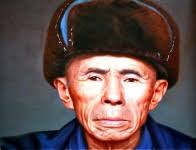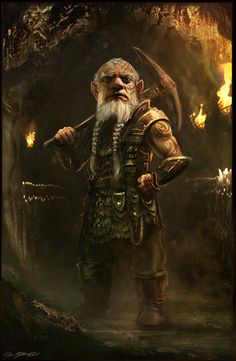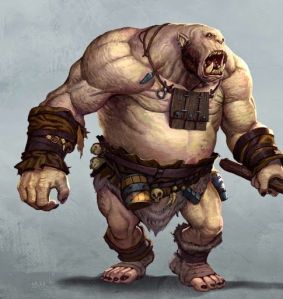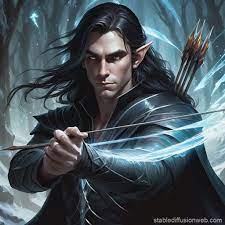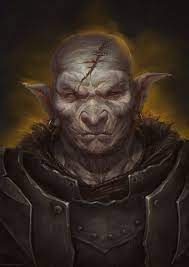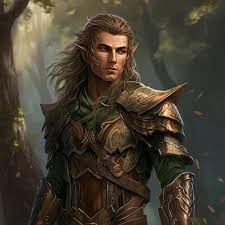The djin had worked free of the ropes as Macreedy and Ellean, held hands, got distracted with each other, and forgot all about holding up their magic around the djin. Glen shook his head. Inevitable, he thought, and he left that place one more time to let a woman from the deep, deep past take his place. That curious armor, like the fairy weave Pumpkin wore, adjusted automatically to this new shape and size.
The woman frowned at the elves who felt terribly ashamed. She continued that frown as she looked around. The dwarfs all doffed their hats and fell to their knees beside the elves and Ignatius found a few fearful tears as he joined them. Even Prickles did not hesitate to go to his knees and Sandra wondered what was going on. When Sandra turned her head, she saw her own mother on her knees, and a big Pumpkin beside her with her head lowered to the dirt. Sandra felt it, too, but wondered what it was all about. This woman looked beautiful, more beautiful than any human being had the right to be, being tall and deeply tanned, with hair as black as midnight, and eyes as bright and blue as the brightest mid-day sky, and to be sure, the effect of all that beauty felt inhuman so when the woman smiled at her, Sandra almost fainted for love, but then Sandra had seen so many inhuman things in the last two days, this just seemed like the icing on the cake.
“Who are you?” Sandra asked, and she revised her thinking. This woman was both the icing and the cake, and all the rest just added together to make the cake plate.
“Danna.” The woman said, in a voice that matched her looks, and Sandra trembled as the woman reached out and took her hand, a trembling, awesome fear that gripped her, like one might feel in the presence of something holy.
“Are you an angel?” Sandra had to ask.
“Heavens, no.” The woman answered with the slightest hint of a laugh in her voice that felt so contagious even in passing, any number of those on their knees had to suppress their own laughter. “But dearest Sandra.” Danna looked sad as she drew the woman up to walk beside her. “You and Glen cannot be. He is responsible for all of these little ones as you have seen, and as long as you have fairy blood in you, he cannot be with you in that way. I am so sorry.”
“No?” Sandra looked sad enough to drop a tear at that thought. “But I was thinking…” She did not finish the sentence.
“No, love, and I feel just as sad for him as for you. He loves you more than you know, but in a small way, he cannot help it because of your blood. Even I cannot say exactly what is real and what is because of your blood, though I will say this, that much of it was real in the way a man really loves a woman.” With that, Sandra did drop her eyes and cry while Danna finished speaking. “If you were the tenth generation, that would not be a problem. Even in the ninth generation, something might be worked out, but sooner than that, it is impossible. The duty of being god of the elves, light and dark, and all the dwarfs that live in-between makes it impossible. I am sorry.”
“Never over people.” Danna smiled again, and with her eyes on that beatific sight, Sandra felt better—she felt warm and loved in a way she never imagined before, and it came as a revelation. “Meanwhile.” Danna turned stern and looked at the three goblin statues that were just outside a strange and fuzzy looking bit of air. Sandra thought it looked a bit like the haze that rose from hot pavement on a summer day, but as Danna reached out and touched that place, the view of the cave and its goblin inhabitants became crystal clear. Sandra clutched at Danna’s arm, but Danna just kept smiling. The goblins doffed their hats with abandon and Cormac, who stood at the rear because he could look over the other heads, thought briefly about turning and running for his life.
“Goblins go home.” Danna said, and as she touched each of the statues, they came back to life and doffed their hats as well as they backed into the dark and began to back down the tunnel. “And Cormac, no more people.” Danna raised her voice a little. “I mean it.” With that, she turned Sandra back toward the others. “Dwarfs go home.” She said right away. “And thank you for all your help.”
The dwarfs smiled at the idea of being thanked. They raised their hats and said things like, “You’re welcome, don’t mention it, glad to do it, and think nothing of it.”
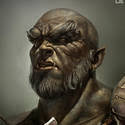 “I guess I’ll be off, too, then.” Ignatius said, and he started to walk away, until he found his feet stilled, like his soles were glued to the ground.
“I guess I’ll be off, too, then.” Ignatius said, and he started to walk away, until he found his feet stilled, like his soles were glued to the ground.
“Stay, hobgoblin, and you too, Prickles. I will be taking you with me.” Danna turned Sandra toward the other women. “Mona.” Danna called Sandra’s mother by name. “You must take Sandra and Melissa home. After a time, the memory of all this will fade for you. I am sorry, but even with your blood, some things are better not known.”
“No, please.” Sandra started to say, but Pumpkin interrupted.
“But Great Lady. I have only just found them, and I have been away for such a long time.”
Danna looked down on the little one, though the fairy knelt currently in her big form, and in that moment of silence, three faces appeared to plead, and Melissa appeared to be cute. “Very well.” Danna said at last. “You may visit from time to time, but only briefly. No more than three days at once. And no one after Mellissa since she is now the eighth.”
“Only not today.” Danna added. “Today I need you.” She tapped her shoulder and instantly, Pumpkin got little and flew to Danna’s shoulder where she sat and took hold of Danna’s hair. With that, Danna let go of Sandra’s arm and returned the young woman to her mother and daughter. She caused the stroller to come up and be straightened and fixed in every way, and all with the merest thought.
“And now.” Danna turned toward the ropes, and they vanished while she raised her head and raised her voice. “Djin.” She only said the word, and the djin, wherever it may have gone in the world, or any other world, vanished from that place and with a slight sound of thunder and a flash of light, she appeared in the place where the ropes had been and she looked very, very afraid. This happened, not like calling the Hobgoblin to appear because that came naturally and easily enough for even non-magical Glen to do. This happened as an exercise of power, incalculable power to be sure.
“Goddess.” The djin fell to her knees and began to sob great tears. She had gotten used to tormenting and torturing humans. She survived off the fear and pain they felt, but though she could dish it out, clearly, she could not stand it.
“Why are you here?” Danna asked, and she continued without waiting for an answer. “You should have gone over to the other side with your brothers and sisters of the djin.”
“Many have gone, but some have not. I am not alone. O please, goddess, I do not want to die.” The option of not speaking or giving a less than truthful answer was not available.
“And if the man had lived and I had not intervened?”
The djin drooled. “After he finished having his way with these mortals, I would have had his soul, and it would have been, delicious.”
“And why should I not send you over to the other side?” Danna asked.
The djin shook her head and looked down. “No, please, please. I cannot help being what I am. But I could serve you, I could.”
“I should trust you?”
The djin looked up with a speck of hope. “Goddess. I keep my bargains. I do. Many do not, even among your little people, but I keep my bargains. I made a bargain with that mortal fool, and I kept it, to the letter, I did.”
Danna frowned again. “Not to the letter,” she said. “But point taken.” She stooped down and picked up a rock the size of her hand. “You will be bound.”
“Goddess, no. Not to a rock. Not one rock among millions, I may be lost forever, please.”
“That is a risk you would do well to remember,” Danna said. “And here are your instructions. You must guard the gate. You may not so much as touch the others who guard the place, nor interfere with them in any way. You may not interfere with those who are welcomed or invited, but those who do not belong, you may frighten to your heart’s content, keeping in mind that humans must never know that this is the work of a djin.” With that, Danna raised her hand and the djin cried out as she became compressed, like a mere image of a person being turned into something like smoke, and she got sucked into the stone, which glowed for a second before the light went out and it became one stone among millions.
 Danna sent her armor and weapons to wherever they were kept and clothed herself in fairy weave, which she shaped into something like a Laura Ashley dress, though with white socks and running shoes on her feet. It was all the rage in those days.
Danna sent her armor and weapons to wherever they were kept and clothed herself in fairy weave, which she shaped into something like a Laura Ashley dress, though with white socks and running shoes on her feet. It was all the rage in those days.
“And how do I look?” Danna asked the others as she slipped the rock into the soft, oversized purse that hung at her side.
“Stunning.” “Beautiful.” “Gorgeous.” The others said, but Sandra had another thought.
“Still too lovely to be human,” she said. Danna nodded. She could not help it. She was a true goddess of old, but she could always make a glamour to tone it down a bit if needed.
With a simple wave of her hand, the old man’s body disappeared. She sent the body back to China where there would be some local consternation over exactly what happened, but the man would be buried with his family. Then she turned again to Sandra and her family with this last word.
“Many years ago, Glen got touched by the goddess of memory. He did not know anything about the little ones when you met him as I think you know. He knew neither the little ones, nor his place among them, and he did not know that he had lived before, and so many times before.” Danna paused to be sure her words penetrated.
“Now, Sandra, there is something else I have to do, and it is long overdue, but first I must tell you. If your memory of all this fades apart from your memory of Pumpkin, his will likely vanish altogether. I must ask you. Please do not speak of these events if you see him again, and please do not speak of me at all.”
With that, Danna, Ignatius, Macreedy, Ellean, Prickles, Pumpkin and the stone of the djin all vanished, and two women and a baby in a stroller were all that were left in that place, like any ordinary mother, daughter and granddaughter out in the university woods taking a late afternoon stroll.









